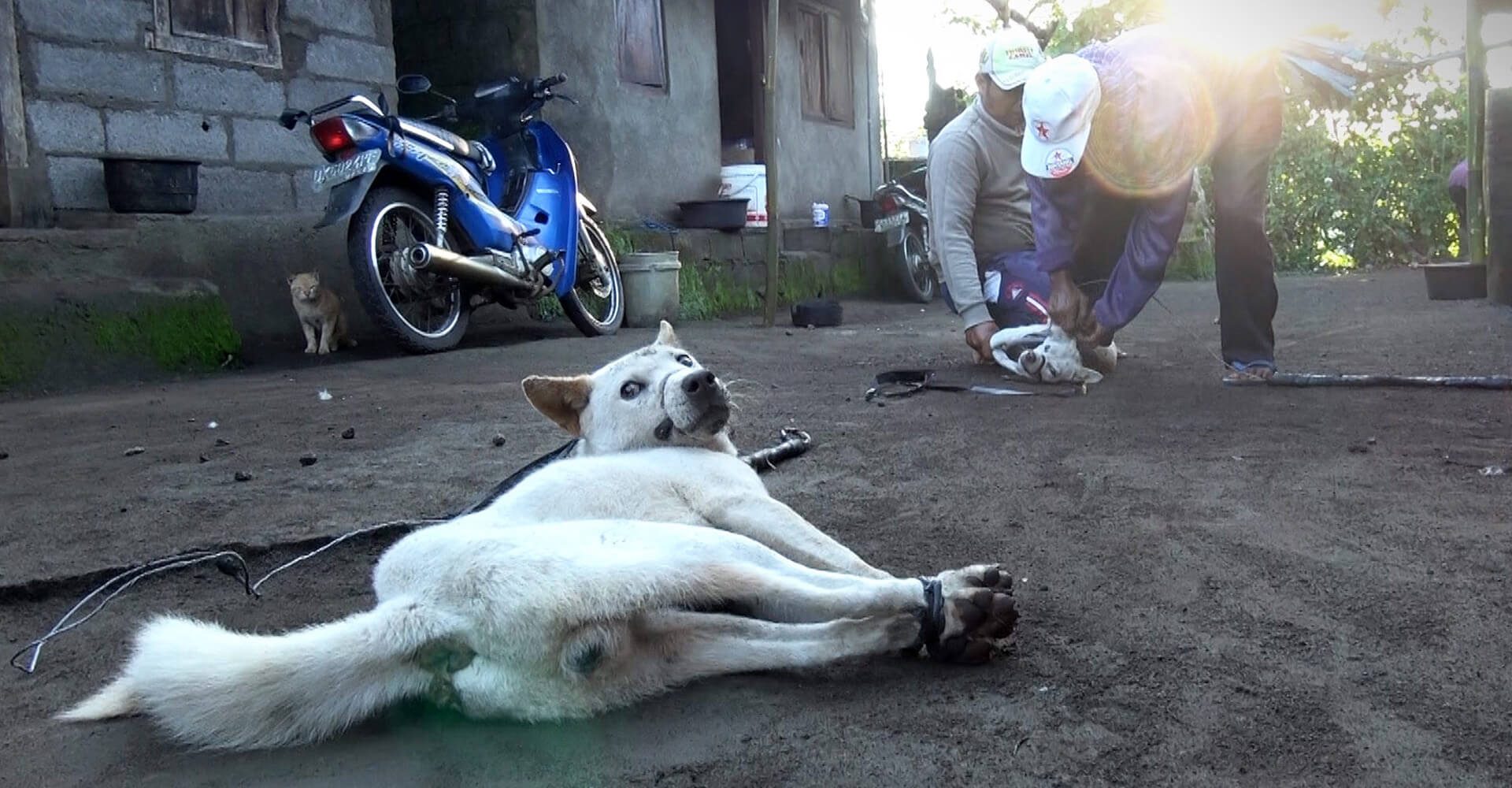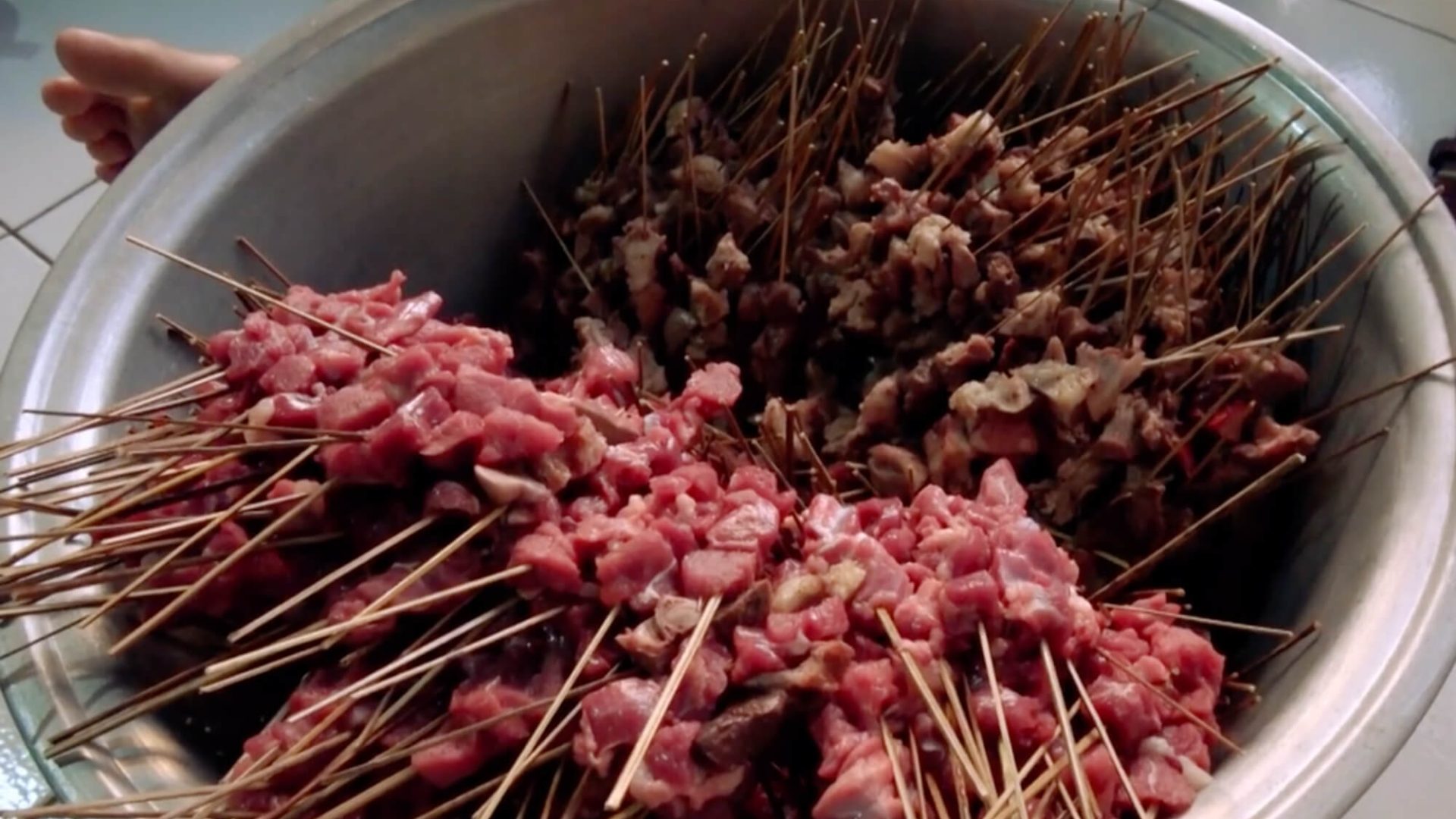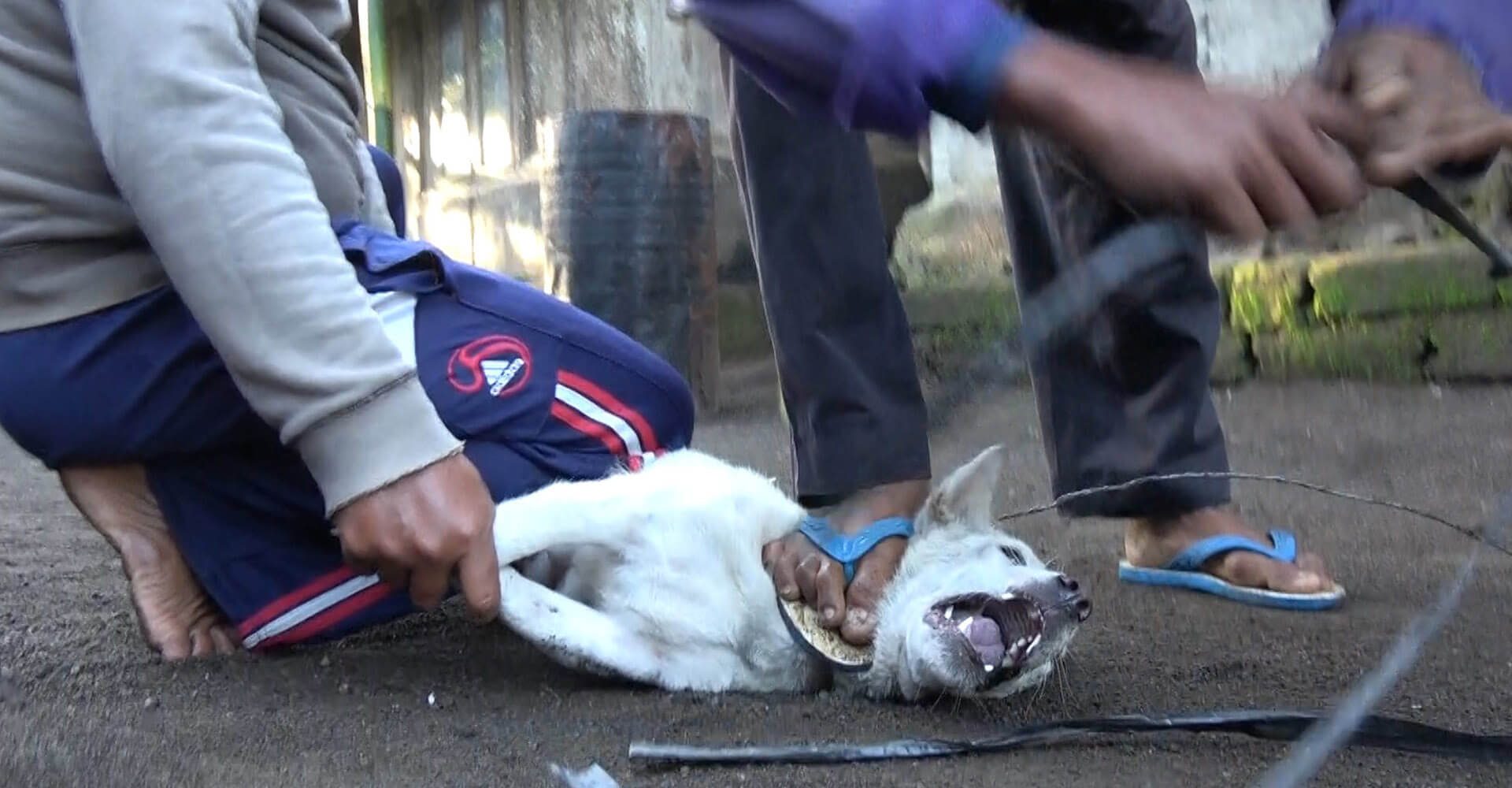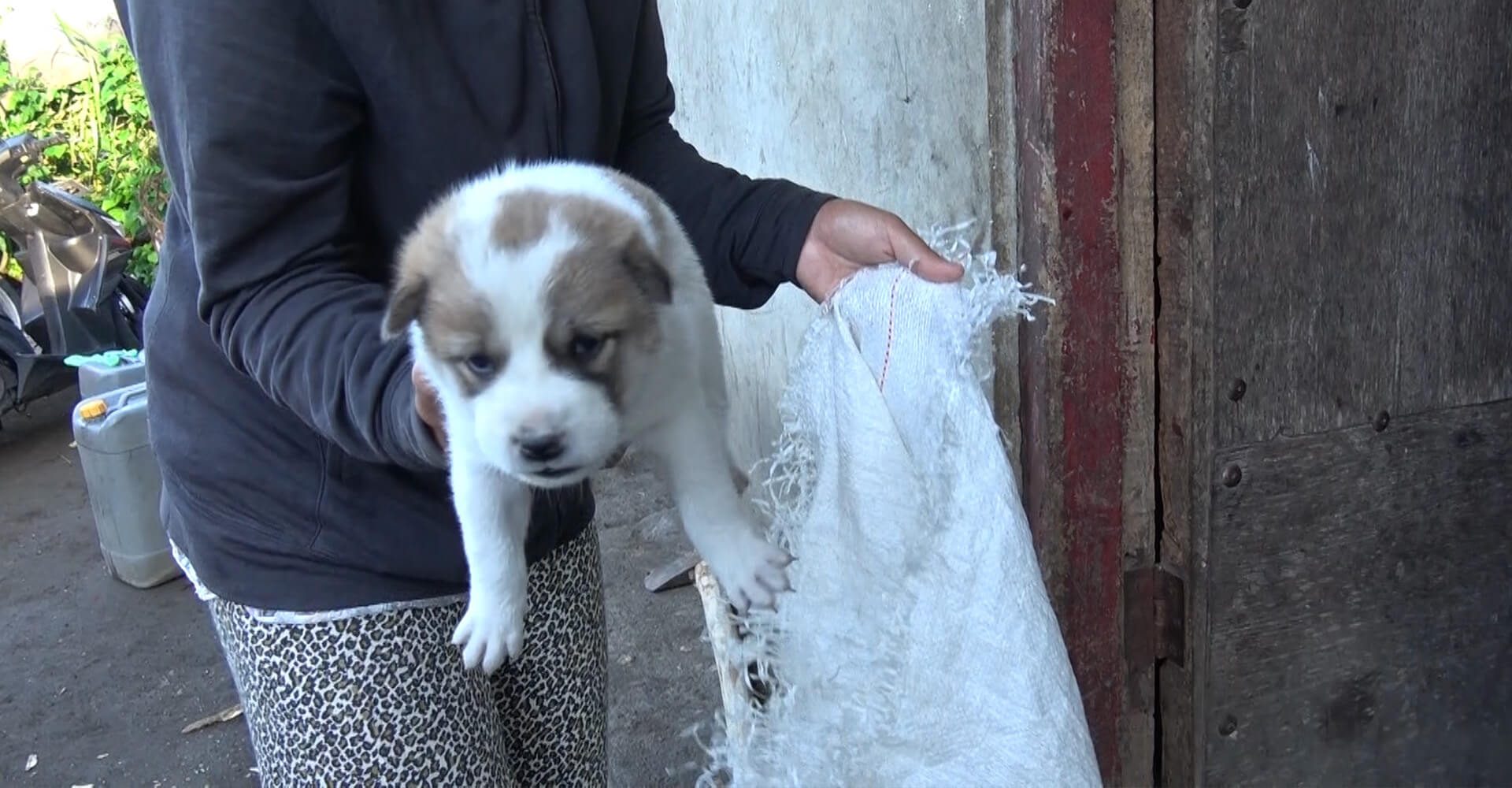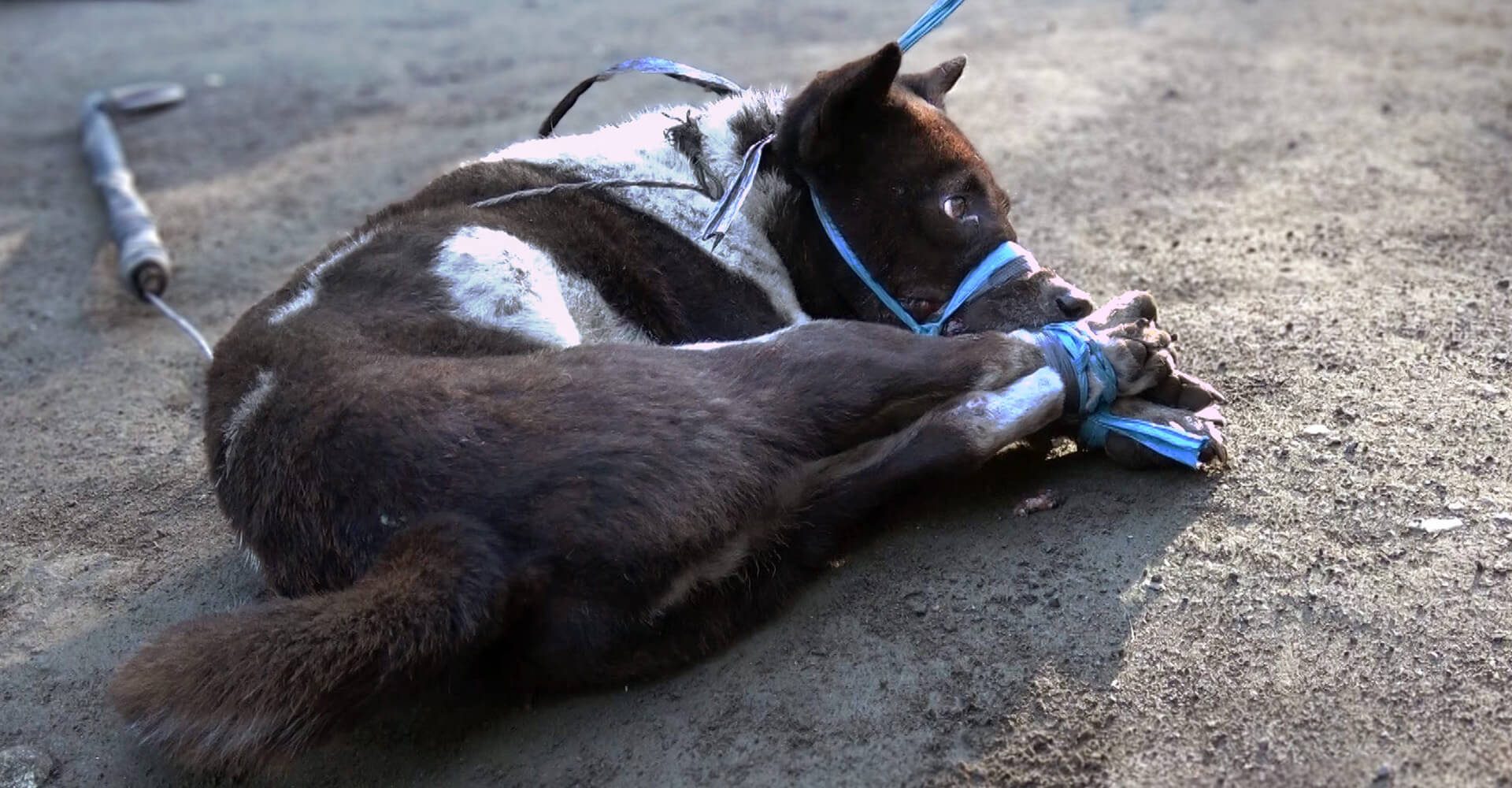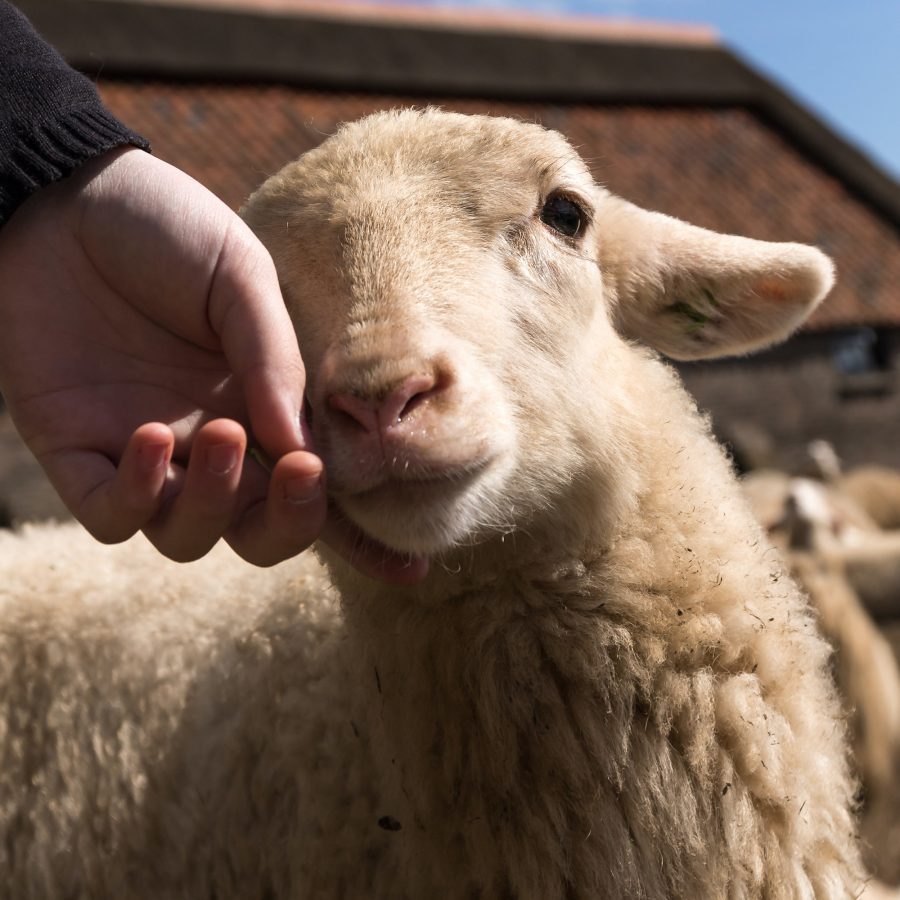“How could they see these beautiful dogs as food in Bali?” was a question many of us asked. Then the inevitable realisation kicked in — we too have been raised to think of certain animals as nothing more than food.
This ‘wake up’ call led to thousands of people around the world undertaking an ‘internal audit’ and seeing ‘food’ animals in a whole new light.
Our world grows both richer and kinder whenever we value animals for who they are — not what their bodies can produce.
Our investigations into the dog meat trade have again reinforced the risks faced by animals — be they dogs, pigs, chickens or cows – when they are seen as nothing more than a food source. All love life, all fear harm. All feel. The good news is that by making conscious, compassionate choices we can create a kinder world for them all.



